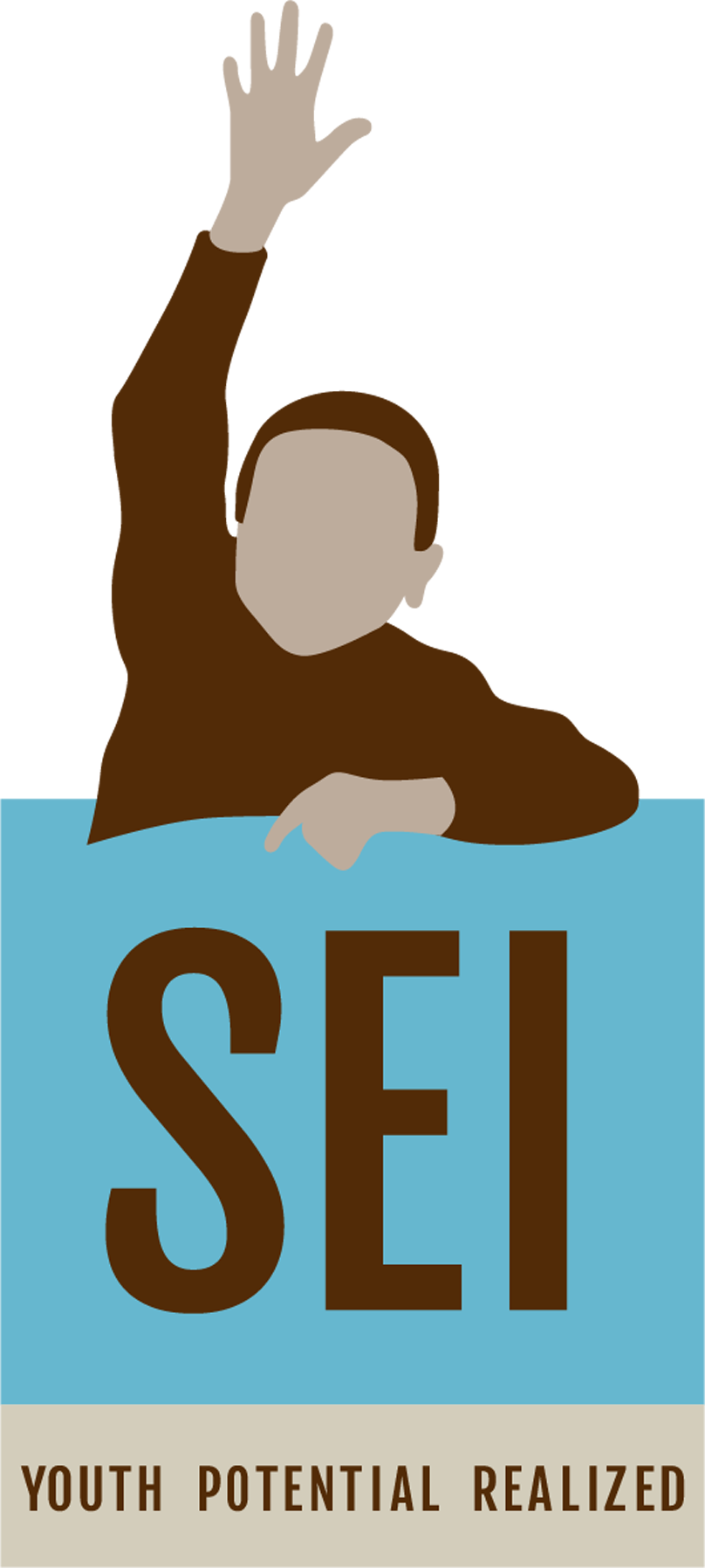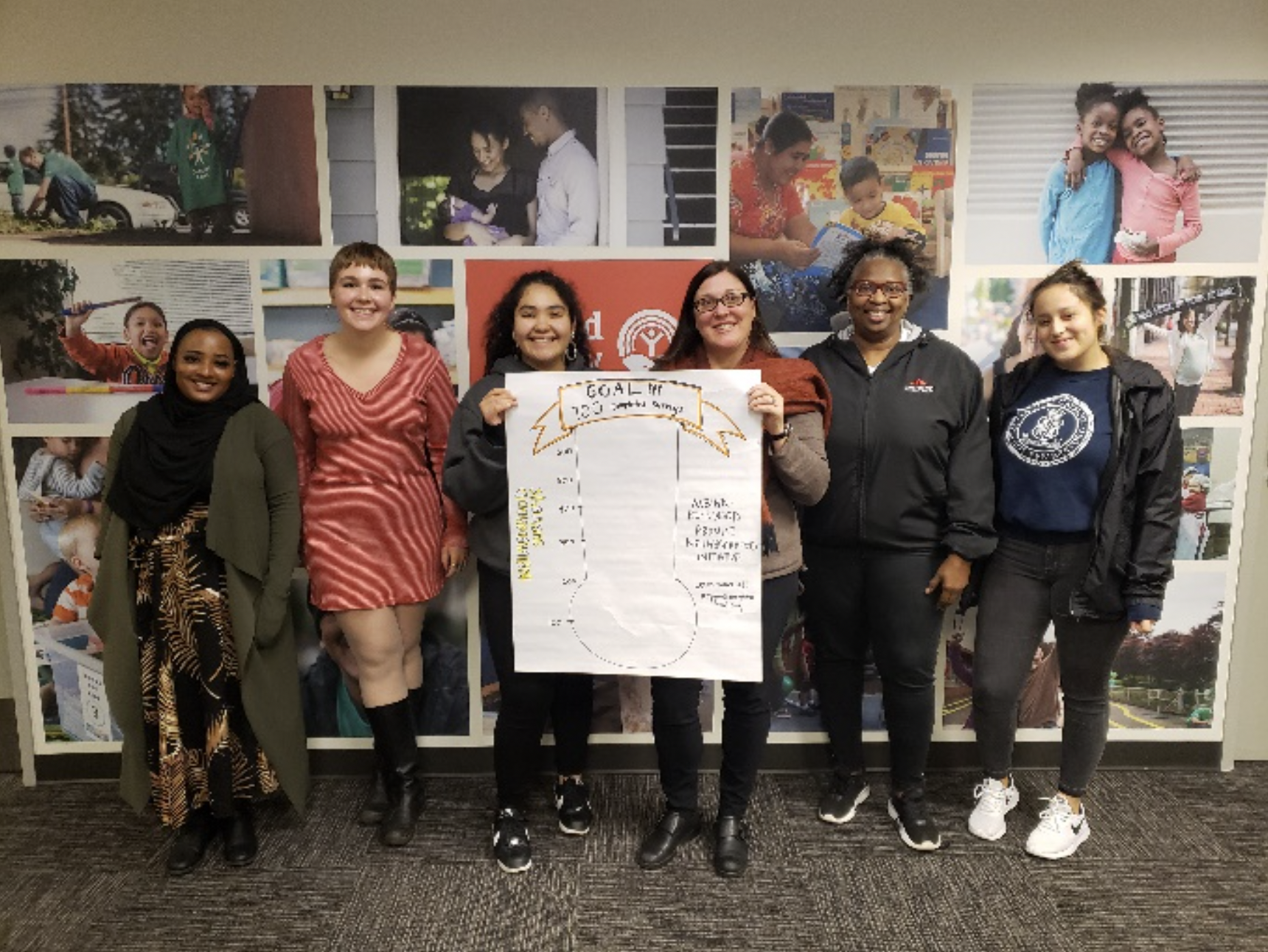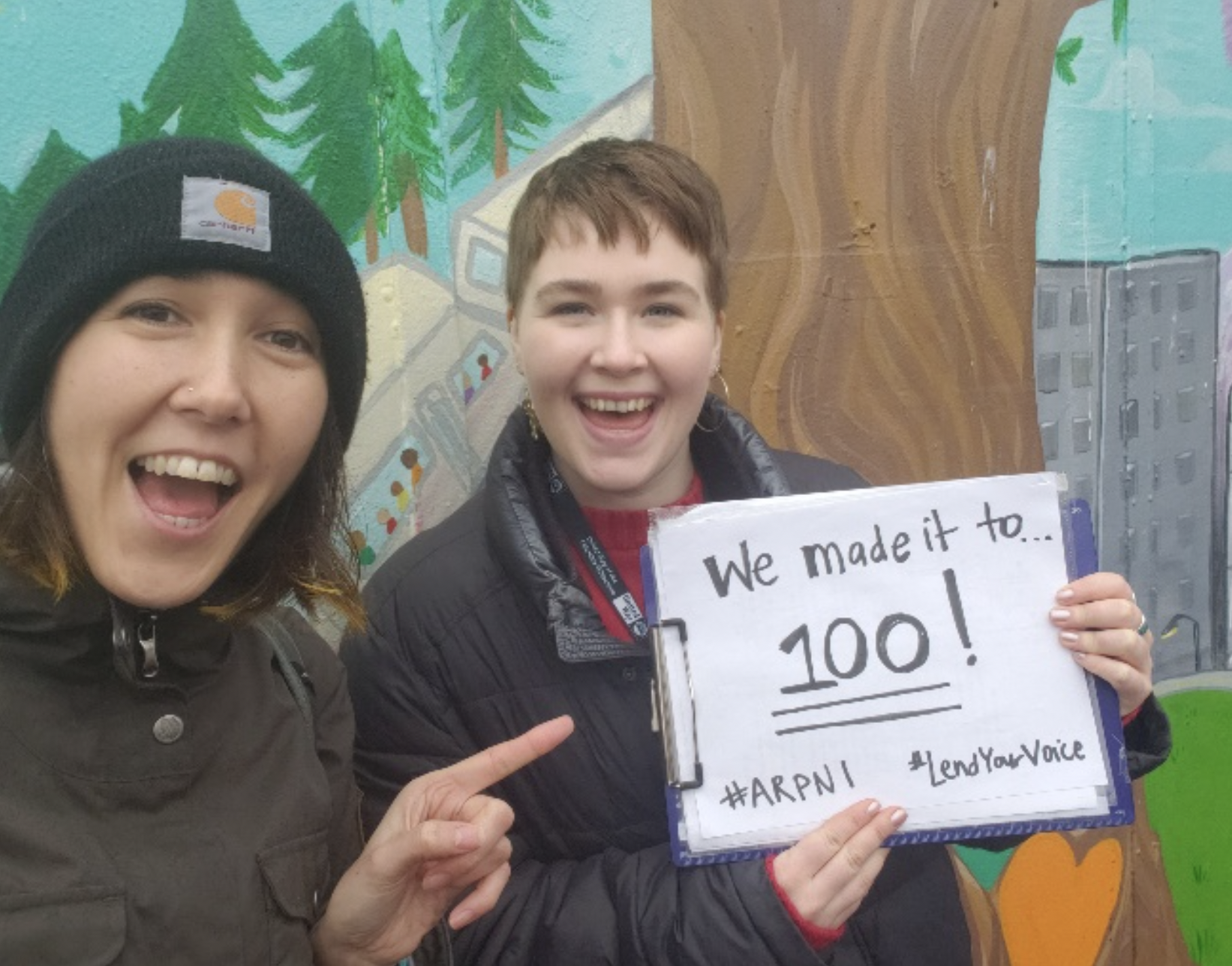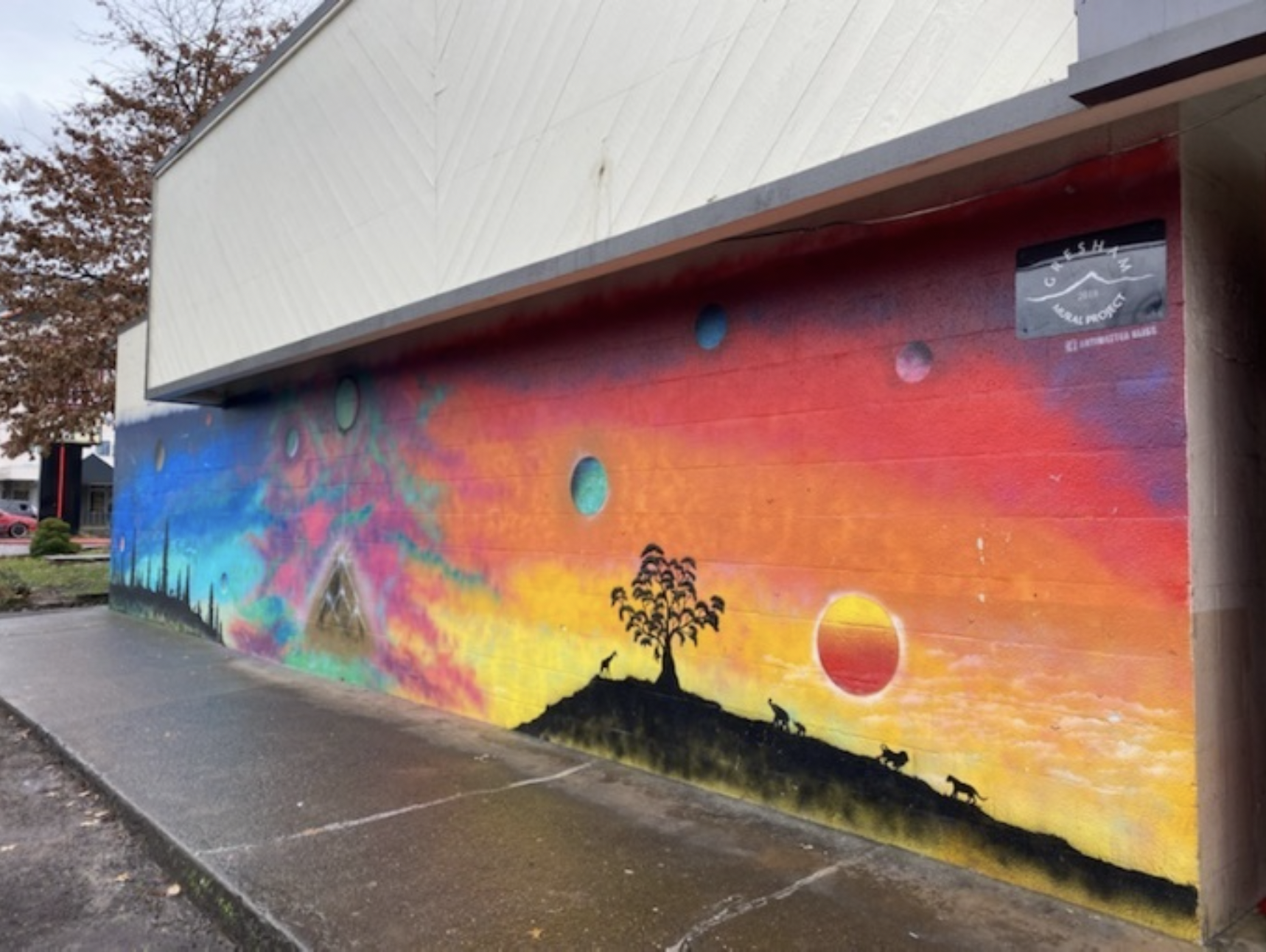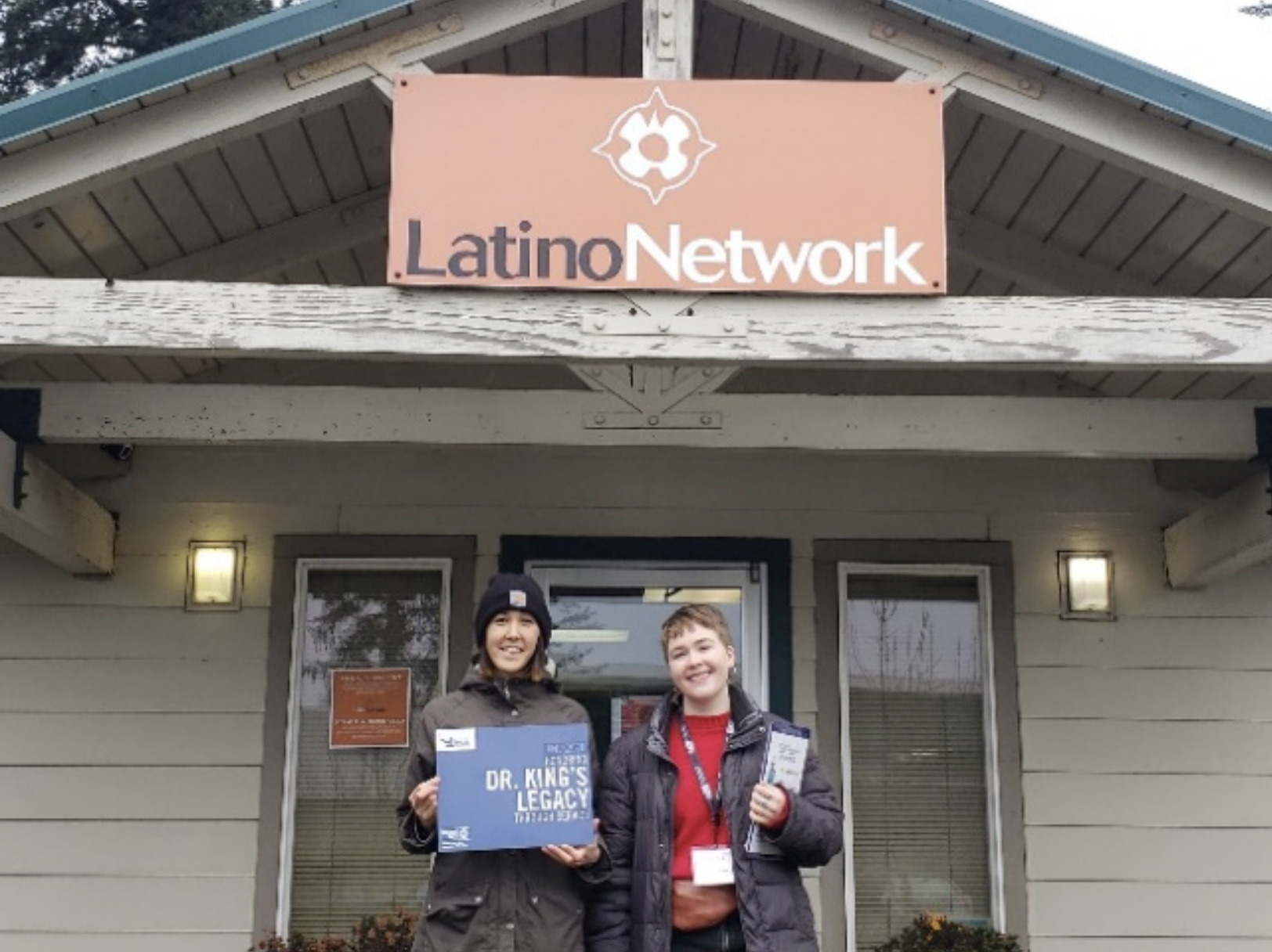Building Connections Across Portland
Simone Holmes, United Way Community Researcher, spent her senior year of high school in Argentina, lived in Greece for two months last summer, and—despite being a Portlander for more than a decade—had never been to Rockwood before joining the Albina Rockwood Neighborhood Promise (ARPNI) Initiative.
“It’s been a great opportunity for me to connect with other parts of Portland. We are here to learn more about what residents need and part of that learning happens as we walk around the neighborhood.” - Simone Holmes
“Even on days when we aren’t able to complete a survey, we can see the strengths of the community: everything from parks and murals to local businesses and nonprofit partners. We are still collecting data. It’s just a different kind of data.” Simone continues.
ARPNI is a U.S. Department of Education grant to support neighborhoods of opportunity by providing a continuum of school readiness and academic services, and family and community supports to children from early childhood through college—and beyond. Led by Self Enhancement, Inc. (SEI), Albina Head Start, Immigrant Refugee Community Organization (IRCO), Latino Network, Metropolitan Family Services (MFS), Native American Youth Association (NAYA), United Way, Portland Public Schools, and Reynolds School District are implementing ARPNI over the next four years.
WONDERING IF YOU’RE ELIGIBLE TO COMPLETE THE SURVEY?
United Way is spearheading the research component of ARPNI, surveying community members in the Albina and Rockwood neighborhoods and surveying students at the Reynolds and Portland Public School Districts. Both surveys will provide important data to understand how to strengthen services for kids and families engaged in ARPNI programming, to learn more about the experiences and priorities of families, and to track progress of the initiative over time. In collaboration with Portland State University, nonprofit partners, and the U.S. Department of Education, United Way developed the ARPNI surveys, aligning questions with key programmatic areas, like neighborhood safety, affordable housing, and school activities. The team at United Way also launched the Community Researcher program. Simone is one of seven researchers out in the field on evenings and weekends to gather data from residents.
This isn’t about extracting data. It’s about building stronger communities together.” - Amanda Shannahan
“This is my first time working as a researcher. But, in many ways, it’s not that different from previous jobs I’ve had. It’s all about making connections and finding things you have in common,” Simone shares. “Many people are so generous and invite us into their homes to take the survey. It feels great to be able to gather data while we’re having a conversation.”
Community Researchers were recruited by ARPNI partners or through local universities, like Portland State, Lewis and Clark, and Portland Community College. During the training and orientation process, researchers learn about the goals of ARPNI, surveying techniques, and best practices for community-based work.
“We developed our Community Researcher program to reflect the ARPNI commitment to equity and culturally-responsive and culturally-specific strategies. Many of our researchers are bi-lingual—and our surveys and outreach materials are available in Arabic, English, Russian, Spanish, Somali, and Vietnamese,”” shares Amanda Shannahan, Senior Manager of Research and Evaluation at United Way. “It’s important that we make the survey as accessible as possible, meaning that we go door-to-door and leverage our nonprofit partner community connections. We want residents to know we are here to serve them and to listen to their concerns. This isn’t about extracting data. It’s about building stronger communities together,” Amanda continues.
Simone recently conducted her first survey in Spanish and was part of the team to complete the 100th survey over the Martin Luther King Weekend of Service. “This is important work. We are capturing the needs of kids and families—and giving voice to their concerns. It feels good to make these connections and to be part of ARPNI,” Simone states.
Learn more at: www.arpromiseneighborhood.org
